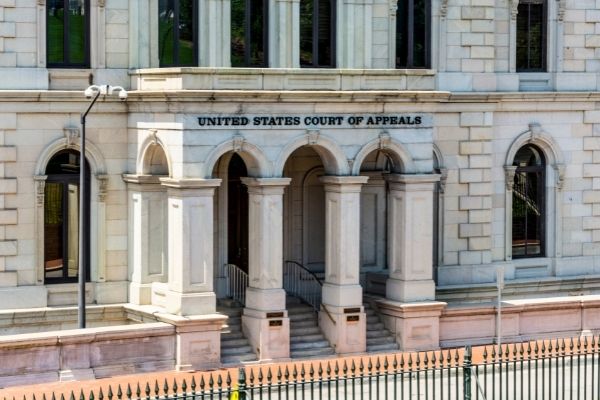Leading Federal Appeal Attorneys: Your Partners in Navigating the Appeals Process
Leading Federal Appeal Attorneys: Your Partners in Navigating the Appeals Process
Blog Article
Debunking the Process of Federal Appeals: What You Need to Know
Navigating the elaborate world of government allures can often seem like passing through undiscovered waters for those not familiar with the procedure. Recognizing the subtleties of appellate court territory, the intricacies of filing a notice of appeal, presenting a compelling brief, and making a persuasive oral argument are important elements that can considerably affect the result of a situation. By unwinding the layers of complexity surrounding federal appeals, individuals can gain a more clear understanding right into the systems that regulate this critical point of the legal system.
Understanding Federal Appeals Process
Exploring the detailed world of the federal appeals procedure introduces a methodical and structured trip with the judicial system. Federal charms function as a crucial device for assessing choices made by lower courts. Understanding this procedure is necessary for any individual associated with legal process at the federal level.
The procedure normally begins with a party disappointed with a lower court's judgment submitting a notice of allure. This activates a review by a greater court, where a panel of judges analyzes the lawful arguments offered by both celebrations. Briefs outlining the lawful reasoning behind each event's setting are sent, and oral debates might be heard to clarify complicated issues.
The appellate court's choice is based on a thorough examination of the reduced court's procedures and the disagreements presented. Once the appellate court gets to a choice, it can verify, reverse, remand, or change the reduced court's ruling, providing clarity and finality to the lawful conflict.
Appellate Court Jurisdiction Explained
Appellate court territory refers to the scope of instances that a particular appellate court has the power to decide and examine upon. Unlike trial courts that hear instances for the first time, appellate courts are restricted to reviewing choices made by reduced courts.
Appellate courts have jurisdiction over details sorts of situations, generally those including lawful errors, step-by-step concerns, or concerns of regulation rather than accurate disagreements. The jurisdiction of appellate courts is typically laid out in statutes and legislations that control the court system. Understanding appellate court jurisdiction is vital for parties involved in the charms procedure as it establishes whether a case is eligible for evaluation and the level to which the appellate court can interfere in the lower court's decision.
Filing a Notification of Allure
The first action in beginning the federal charms procedure entails submitting a Notification of Appeal with the appropriate appellate court. This important paper officially alerts the court and the various other events associated with the case that the appealing party intends to seek an evaluation of the lower court's decision. Filing a Notice of Appeal is a stringent procedural requirement that sets the appellate process in motion.
When preparing the Notice of Appeal, it is important to guarantee compliance with the particular guidelines and guidelines of the relevant appellate court. federal crime lawyer. The paper needs to normally include info such as the case name, the lower court's name, the day of the judgment being appealed, and a succinct declaration suggesting the grounds for the allure

Rundown and Dental Argument
In the appellate procedure, offering composed briefs and taking part in oral disagreements play crucial roles in promoting for the appealing party's setting prior to the appellate court. Briefs are comprehensive legal records that outline the celebrations' debates, legal authorities, and analysis sustaining their placements. These written submissions give the court with a detailed understanding of the truths of the instance, the pertinent law, and why the appealing celebration thinks the reduced court's choice should be reversed.
Adhering to the entry and review of the briefs, oral disagreements use the events an opportunity to further clarify their settings, attend to any concerns the appellate judges might have, and highlight bottom lines from their written briefs. Dental debates are a possibility for the lawyers to persuade the courts via spoken advocacy and responses to inquiries from the bench.
Both the written briefs and oral arguments are important elements of the appellate procedure, enabling celebrations to provide their situation completely and look at more info compellingly prior to the appellate court. - federal crime attorney
Obtaining the Appellate Court Choice
The appellate court's decision is commonly delivered in a composed layout and describes the court's verdicts on the legal problems offered, the reasoning behind their decision, and the judgment provided. The time frame for getting the appellate court's choice can differ, but courts aim to give timely resolutions. Whether the appellate court affirms, turns around, or remands the reduced court's choice, understanding the ramifications of the judgment is crucial for all celebrations included in the appellate procedure.
Conclusion
Comprehending the appellate court jurisdiction, filing a notice of appeal, preparing briefs, and presenting oral arguments are all vital components of this procedure. Inevitably, obtaining the appellate court choice can supply clearness and resolution to legal conflicts.
As we progress from understanding the federal charms process to dissecting the complexities of appellate court jurisdiction, a basic facet comes to light relating to the authority and limitations of these higher courts in the legal landscape. Appellate court territory refers to the range of situations that a particular appellate court has the power to review and determine upon. Unlike trial courts that listen to instances for the very first time, appellate courts are limited to assessing choices made by lower courts. Recognizing appellate court territory is important for parties entailed in the charms process as it establishes whether a situation is eligible for testimonial and the degree to which the appellate court can interfere in the reduced court's decision.

Report this page